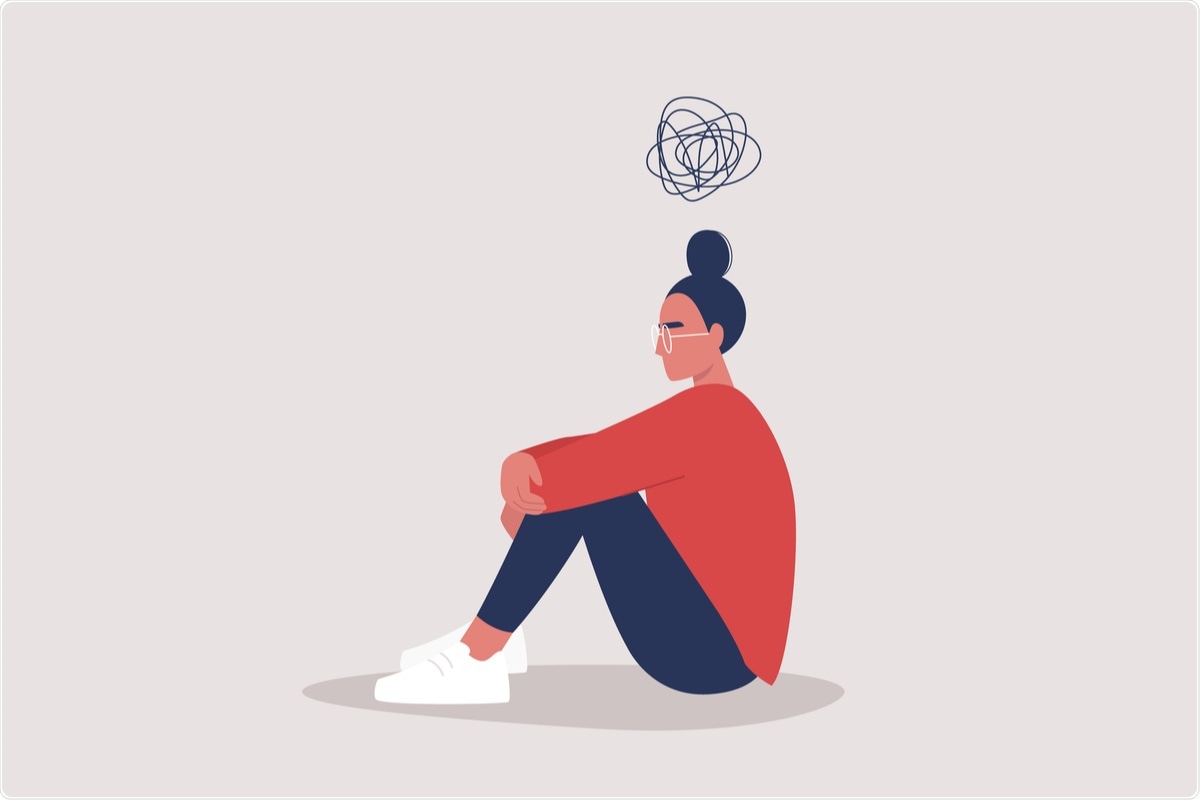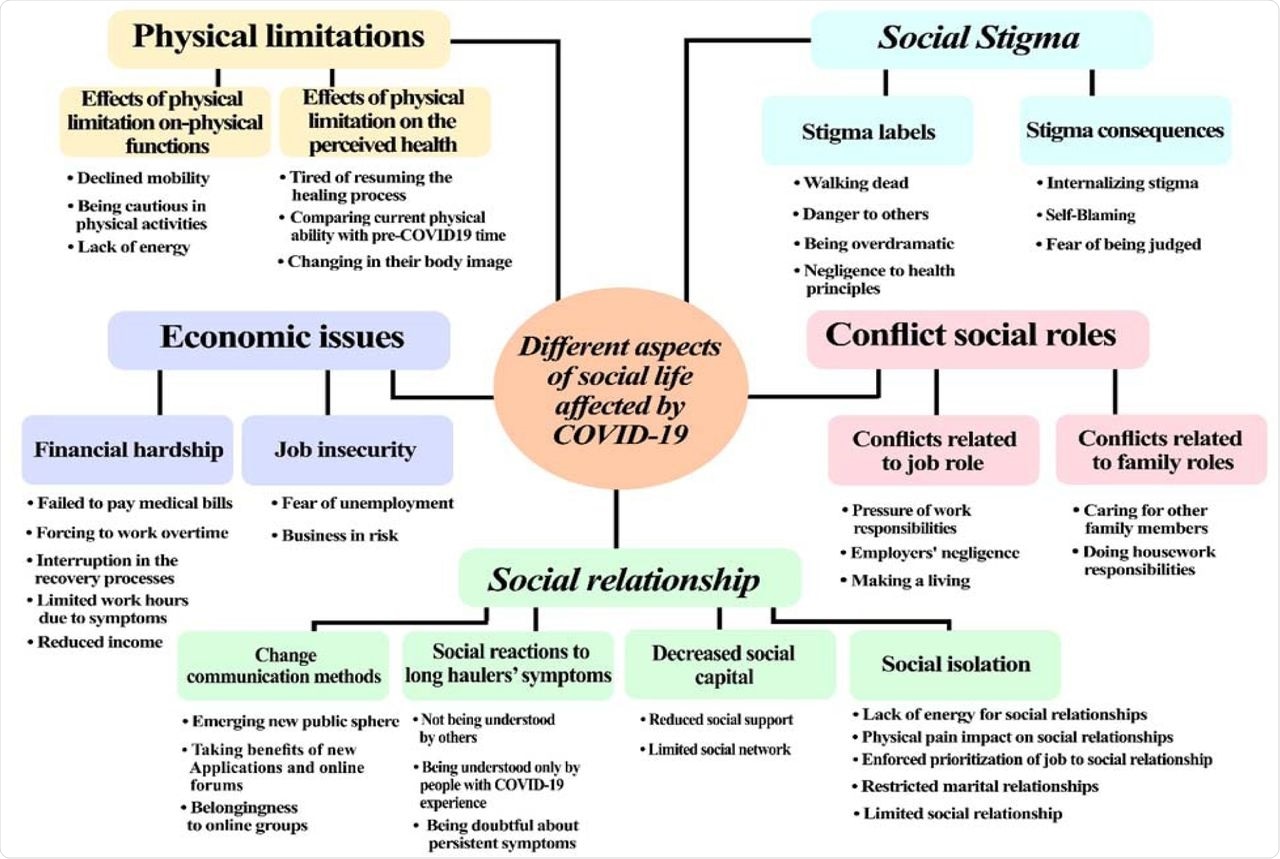Online survey highlights the struggles of females with long COVID
The acute and long-term consequences of coronavirus disease (COVID-19) can be debilitating. According to the United States Centers for Disease Control and Prevention (CDC), the persistent symptoms related to COVID-19 can range from physiological problems like fatigue and shortness of breath, cognitive issues like difficulty concentrating, and emotional distress, including anxiety and depression.
The U.S. National Institutes of Health (NIH) refers to these long-term COVID-19 symptoms as post-acute sequelae of SARS-CoV-2 (PASC), which is more commonly referred to as “post-COVID syndrome,” “long COVID,” or “long-term COVID.”

Study: Impact of persistent COVID-19 symptoms on social life of female long haulers: A qualitative study. Image Credit: Nadia Snopek / Shutterstock.com
Background
Preliminary reports indicate that women have a reduced risk of severe disease and death from COVID-19 than men. However, women are still susceptible to some of the most unfathomable impacts of long-COVID on their socio-economic lives, making them more vulnerable to severe physical and mental trauma. The primary triggers for deteriorating women’s health in the long-COVID phase include social isolation, unstable income, and the burden of caring for their families.
Previous studies have shown that women have been disproportionately affected by COVID-19-related unemployment and economic impacts compared to men. To this end, data from the Kaiser Family Foundation (KFF) Women’s Health Survey has shown that 8% of women quit their jobs for COVID-19-related reasons, where 48% reasoned unsafe work-environment, 30% cited parenting responsibilities, and nearly 20% did not want to risk the lives of co-inhabiting friends or family members.
In a recent study published on the preprint server medRxiv*, researchers assess the experiences and consequences of long COVID in women’s lives through an online intervention.
About the study
Eligible female adult participants who had been affected with COVID-19 and had at least one significant long-lasting COVID-19 sequelae up to one month after infection were invited to participate in the study. Those who chose to participate enrolled in the online health promotion intervention between two and a half months from the end of March 2021 to mid-June 2021.
Study participants were recruited primarily using social media, with eight Facebook groups being the leading social media platform, along with one Slack group and one organization’s website. Fifteen out of the seventeen women who showed interest in the study qualified for its objectives.
The inductive approach for thematic analysis was applied in this study. The MAXQDA software was used to analyze the interviewee transcripts. These transcripts were reviewed multiple times for their accuracy and thematic analysis.
Researchers then compared and contrasted themes to determine similarities, differences, and associations between findings. These patterns were assessed using standard and in-depth qualitative data analysis techniques during coding, including open coding, marginal remarks, axial coding, memo-writing, and comparisons.
Study findings
Almost all study participants reported reduced mobility, rendering them incompetent to execute the most basic chores like gardening or even moving around in the house. This reduced mobility also caused the affected participants to compare their active lifestyles in pre-COVID times and experience stress as a result of these comparisons.
Almost all study participants shared their concerns about their employment status. One primal “fear-factor” was fear of being unemployed or fired from their jobs for no valid reason, which appeared to be even more stressful to the participants than the infection itself.
While some women worked even harder by acquiring part-time jobs or taking overtime shifts to feed their families, others were more engrossed in household chores that added to their physical stress. The accumulation of medical costs was also another major concern.
All participants complained of fatigue and the negative impacts of their social wellbeing due to the existing distancing norms and limited communication, also adding to the stress of daily life after suffering long-term COVID-19 sequelae. Overburdened women with persistent physical pain also reported an impact of their symptoms on the maintenance and development of their social relationships.
The study participants also reported social stigma and blame games that continued after they were positive for COVID-19, with women being blamed for their apparent carelessness that caused the infection in the first place. Upon an overall assessment, these issues contributed to a vicious cycle of both physical and mental stress that made life difficult, especially for women recovering from COVID-19.

Dimensions of the COVID-19 persistent symptoms impact on social life of female long haulers.
Implications
The survey results discussed here highlight the need for better policies and intervention programs to address the challenges and barriers that long haulers face in returning to normal social life, especially for females. Thus, there remains a need for tailored social life-related recommendations and social support for female long haulers.
*Important notice
medRxiv publishes preliminary scientific reports that are not peer-reviewed and, therefore, should not be regarded as conclusive, guide clinical practice/health-related behavior, or treated as established information.
- Aghaei, A., Zhang, R., Taylor, S., et al. (2022). Impact of persistent COVID-19 symptoms on social life of female long haulers: A qualitative study. medRxiv. doi:10.1101/2022.01.21.22269671. https://www.medrxiv.org/content/10.1101/2022.01.21.22269671v2
Posted in: Medical Research News | Medical Condition News | Women's Health News | Disease/Infection News
Tags: Anxiety, Coronavirus, Coronavirus Disease COVID-19, Depression, Fatigue, Pain, Parenting, SARS, SARS-CoV-2, Stress, Syndrome, Trauma, Women's Health

Written by
Sreetama Dutt
Sreetama Dutt has completed her B.Tech. in Biotechnology from SRM University in Chennai, India and holds an M.Sc. in Medical Microbiology from the University of Manchester, UK. Initially decided upon building her career in laboratory-based research, medical writing and communications happened to catch her when she least expected it. Of course, nothing is a coincidence.
Source: Read Full Article


